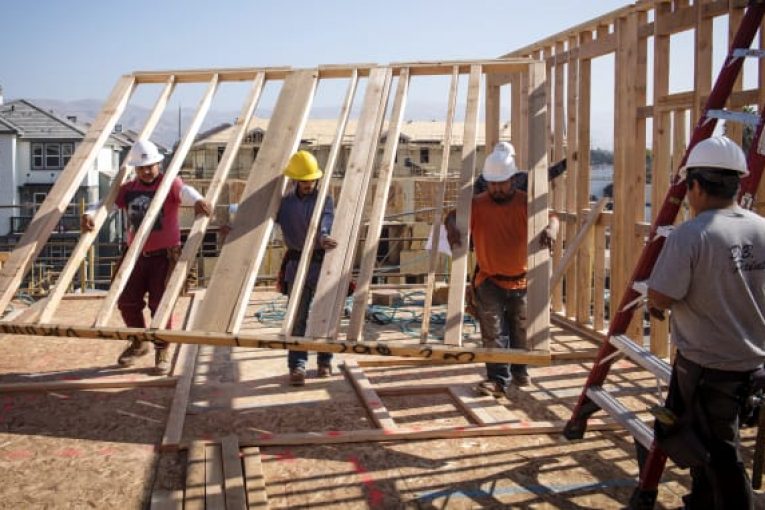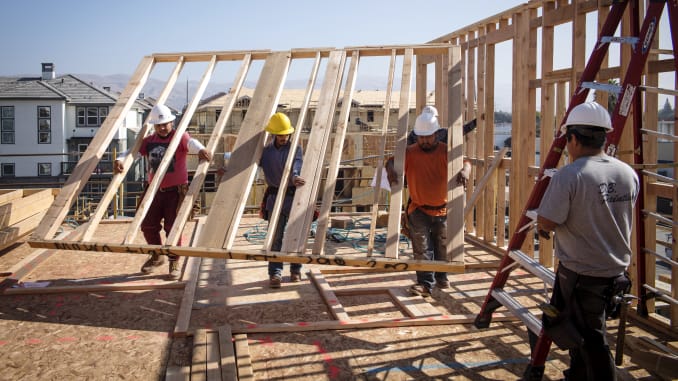

Twice San Francisco-area Senator Scott Wiener has introduced legislation that would reform zoning in California – twice he has not been able to get it to a vote.
On Monday, he introduced new changes to SB 50, hoping to earn support of local cities and counties. One of those changes was to give local communities two years “to develop plans to boost development in their communities before state mandates for greater housing density take effect.”
In a press call on Monday, Senator Wiener said local government officials were in support of more housing for their cities, but wanted more local control over where, how, and when it would be built.
“We have a multi-million unit home deficit in California,” Wiener said during a call with reporters on Monday. “And we want to make sure that as we build those homes that we definitely need, we aren’t building sprawled.”
Such changes would allow local officials to construct “shorter buildings in one area, taller buildings in another,” according to their own housing plans.
“Cities will have that option to meld it and move the density around but produce the same number of units,” he continued.
“They want to be able to have some flexibility to increase the density in their community in their own way,” Senator Wiener said.
SB 50, as written last year, would have eliminated hyper-low-density zoning near transit and job centers, thus legalizing apartment buildings and affordable housing in these locations so that more people can live near transit and near where they work.
The key point is that “California has a 3.5 million home deficit, equal to the housing deficit of the other 49 states combined. California ranks 49 out of 50 states in homes per capita. Since the  early 1960s, California population has almost tripled, while its housing production has declined by about 75%.”
early 1960s, California population has almost tripled, while its housing production has declined by about 75%.”
But of course Senator Wiener’s proposal is somewhat radical. It would largely eliminate single-family zoning, at least near transit and job centers.
The goal of the bill is to boost growth where development has already taken place, in hopes of easing the state’s housing affordability challenges – while at the same time reducing California’s reliance on automobile travel to get to work, in hopes of reducing greenhouse gas emissions.
The places that would be most impacted are places with the highest concentrations of population – Los Angeles, the Bay Area, Silicon Valley and the like.
In those locations, lower-density neighborhoods would be required to allow up to four- and five-story apartment buildings, particularly near transit – especially rail lines.
Moving out from the highest density location, more suburb locations like Marin, Sonoma, San Barbara and the like would see less dramatic increases to building heights.
Moreover, neighborhoods across the state at risk of gentrification will have five years — rather than two — to develop their own development blueprints.
While some believe that the senator’s plan goes too far, he argues that this embraces “the need for more housing density, helping avoid environmentally disastrous sprawl near our major urban centers.”
The question now is whether the changes that the new SB 50 has proposed will be sufficient to get the measure to a vote and ultimately approved in the legislature. Whether these changes can overcome some of the concerns that led previous versions to be shelved remains to be seen.
Last year, SB 50 had the support from major city mayors including: San Francisco Mayor London Breed, Oakland Mayor Libby Schaaf, Sacramento Mayor Darrell Steinberg, San Jose Mayor Sam Liccardo, and Stockton Mayor Michael Tubbs.
But, understandably, local governments in more suburban areas from San Diego to Marin County are united against the bill, believing that SB 50 represented a significant incursion by the state into local affairs.
In addition, groups representing lower-income communites of color have argued that his bill would exacerbate gentrification and displacement of residents while activities from the suburbs were concerned that the measure would threaten the character of their neighborhoods.
Among the changes is the hope that the bill will now allow cities and counties to create their own local plans that increase growth around transit and jobs – increasing density at levels required under SB 50.
Scott Wiener continues to believe “major changes to how local governments plan and zone for housing were necessary to address a severe shortage of available homes and to help the state meet its goals to reduce greenhouse gas emissions.”
Cities and counties are already facing existing new mandates for increasing housing within their boundaries and Senator Wiener said he believes his bill would complement those requirements and allow cities to create plans to meet existing state guidelines as well as provisions under SB 50.
“SB 50 will be extremely helpful to cities that are seeing a big increase in their housing goals,” he said.
But without the support from people like Gavin Newsom and Senate President Toni Atkins, the bill has little chance.
Governor Newsom in October, however, signaled a renewed willingness to support measures of this sort.
“We need to continue this kind of energy to focus on increasing that supply,” the governor said in October during a ceremony to sign housing legislation. “Continuing to do the good work that Scott Wiener has been doing raising the issue of production in this state, and trying to do what he can to help his colleagues be convinced that they’re going to survive if they just come on over and help support, a little bit more, an indulgence in the construction side of things.”
The California League of Cities continues to oppose the bill unless amended, however, they did say they will determine whether that remains after changes are analyzed. They were concerned last year that SB 50 undermined locally adopted housing plans.
But groups like California YIMBY (Yes In My Backyard), the California Chamber of Commerce and the California Labor Federation are strong endorsers.
“We believe that SB 50 will help us achieve our vision for a California for everyone where nobody is shackled by the circumstances of their birth or bad luck,” said Brian Hanlon, YIMBY’s president and CEO.
The bill faces a January 31 deadline to pass the Senate.
—David M. Greenwald reporting







I didn’t know ‘charm’ had glowing-red eyes, a forked tail, and breathed hellfire.
(Um, yeah, not a fan of SB-50)
Sounds like socialism.
YIMBY – “Shaming so-called NIMBYs with hate speech since 2006”.